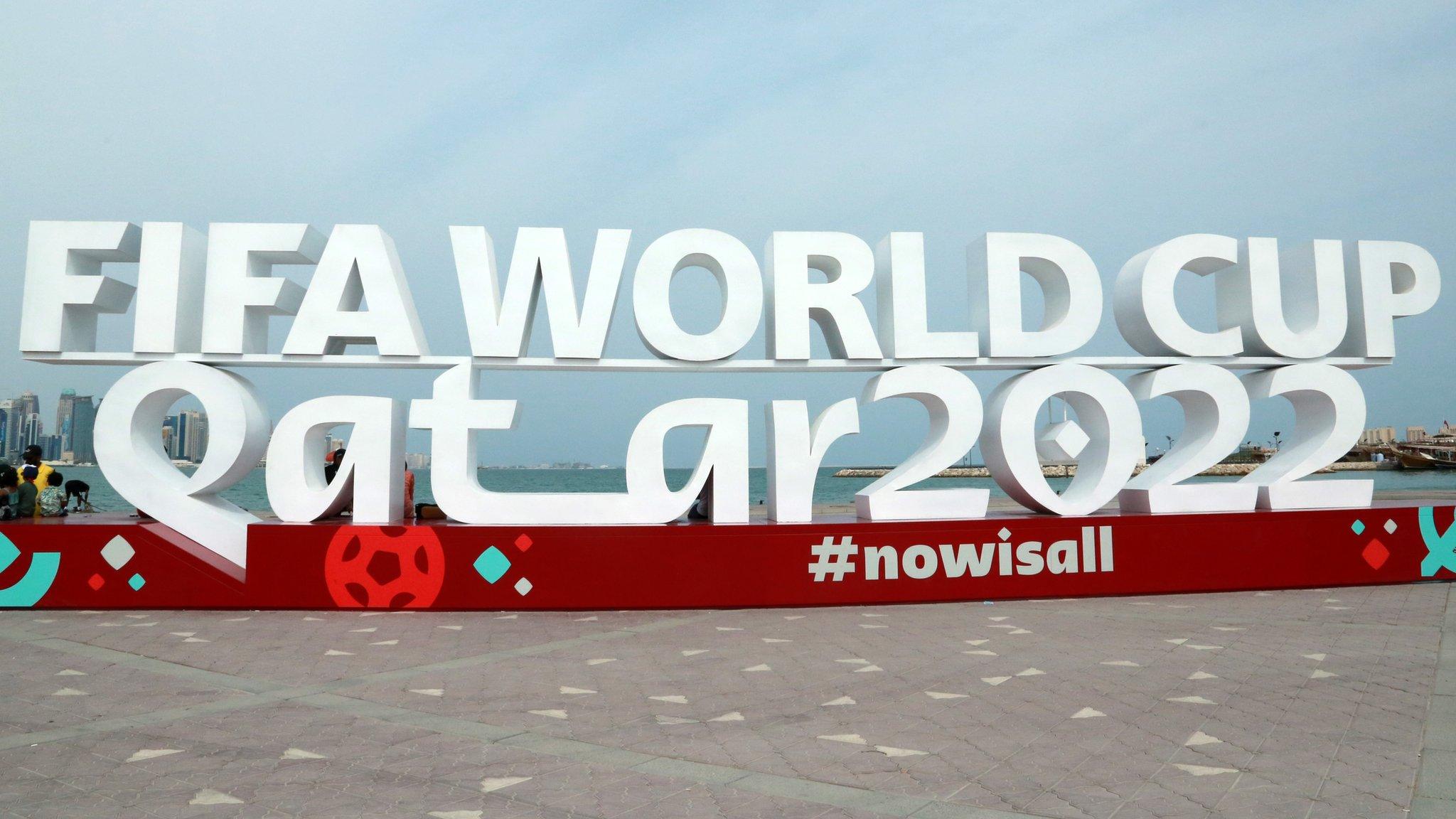Fan boycotts World Cup for first time in 32 years

David Hancock is worried for fans who may drink too much alcohol in Qatar
- Published
A sports travel agent said he was boycotting the football World Cup for the first time in more than 30 years because of concerns about human rights in Qatar and allegations of corruption.
David Hancock arranges travel packages for sports journalists and has travelled to every tournament since Italia '90.
The 58-year-old, from Burnham-on-Crouch, Essex, said he also could not support the country's stance on LGBTQ+ people.
Qatar's World Cup organisers insisted "everyone is welcome" and that no-one would be discriminated against.
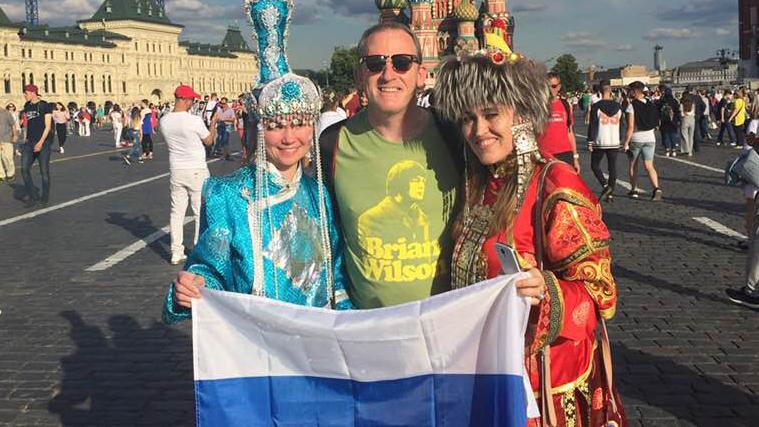
Mr Hancock, pictured in Russia in 2018, says there is "nothing to do" for fans between matches in Qatar
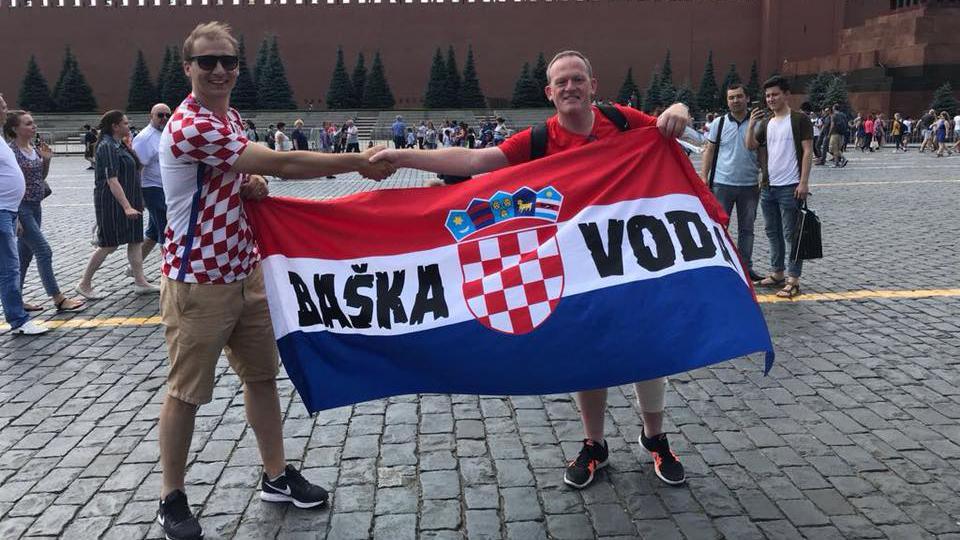
David Hancock (right) had a photo taken with a Croatia fan in Moscow during the 2018 World Cup
"I really haven't got a great deal of interest [in this World Cup]," said Mr Hancock, who will have about 20 of his clients in Qatar.
"I can't support the attitude that the regime have chosen towards the LGBT community, and I also think that they've done such a good job in that they've persuaded the West it is acceptable to have this tournament."
Qatar was awarded the tournament in 2010, which kicks off on 20 November.
Prosecutors in Switzerland have been investigating "unknown persons" over the awarding of the tournament to Qatar, but no-one has yet been convicted in the country.
Homosexuality is illegal in Qatar because it is considered immoral under Islamic Sharia law.
The country has also been criticised for stadium working conditions, with many migrant workers alleged to have died in their construction, though Qatar disputes this.
Mr Hancock said he had visited Qatar four times in recent months, including to the England team hotel.
"I have a lot of other concerns as the tournament progresses," he told BBC Essex.
"There is nothing to do out there at all, nothing, unless you want to go into five-star hotels and drink alcohol, and that's where I can see possible problems."
Licensed hotel bars and restaurants are the only places that usually sell alcohol in the country, but it will also be served "in select areas within stadiums" at the tournament, organisers said.
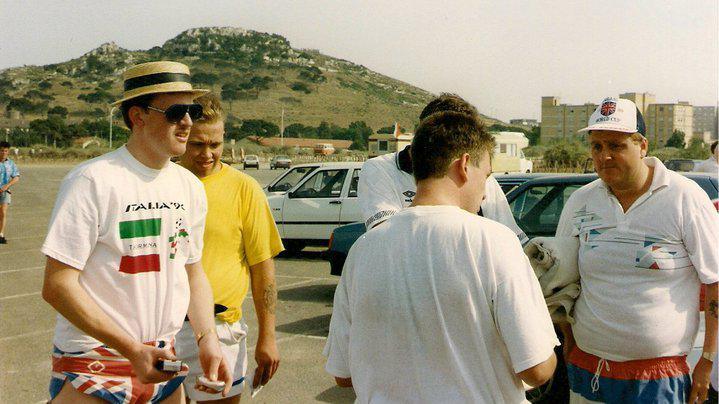
David Hancock with friends from York at the Italia '90 Fifa World Cup
Mr Hancock's World Cup journeys have included helping arrange blood donations in Sardinia, Italy, in 1990, climbing Mt Fuji in Japan in 2002 and playing in a supporters' match against inmates at a high-security prison near Pretoria, external, South Africa, in 2010.
Mr Hancock added: "Fifa always talk about a legacy of a World Cup. Can anyone tell me what the legacy is going to be for Doha and Qatar?"
The tournament organisers have said three stadium precincts have already become "major community hubs", external.
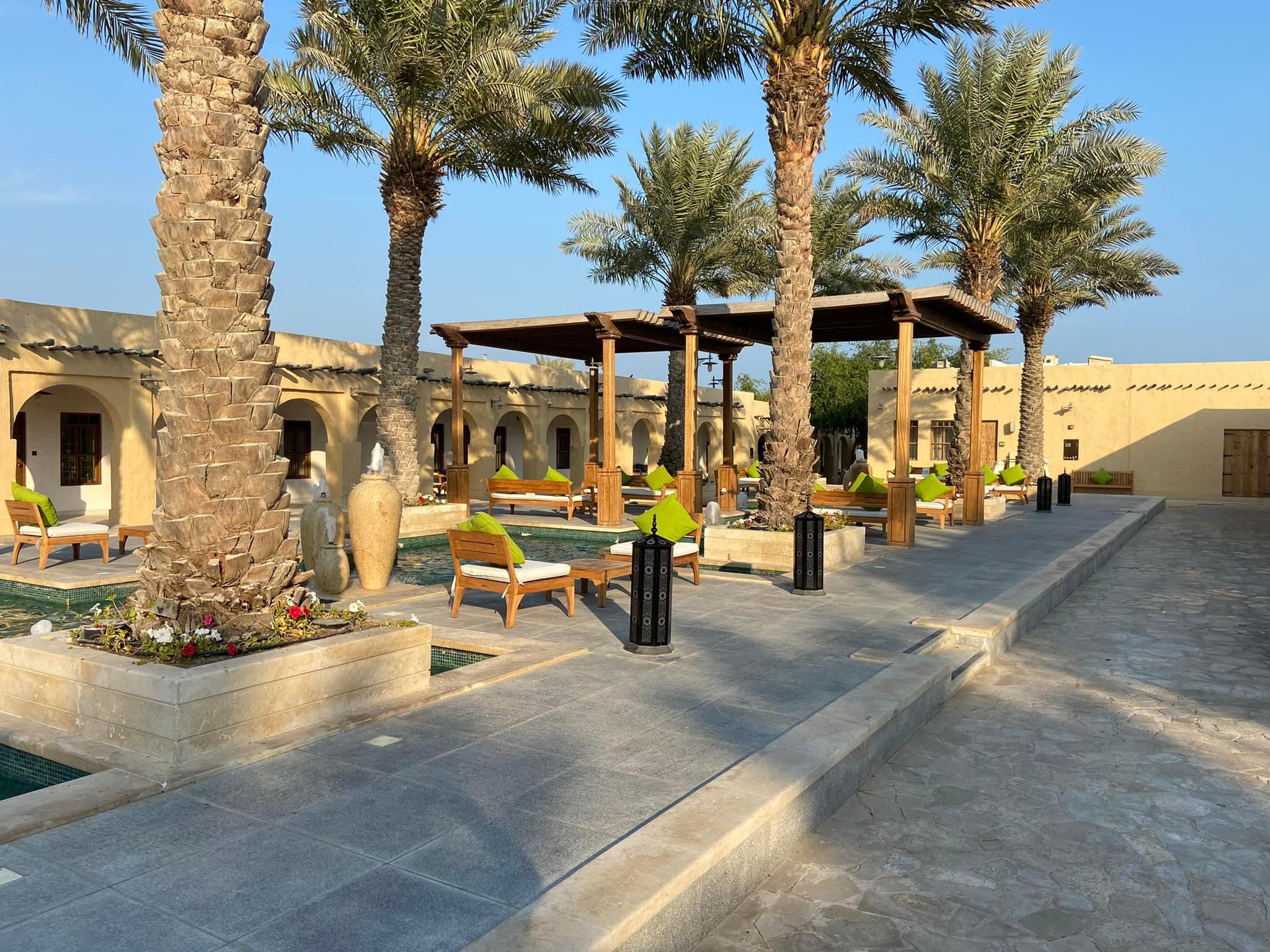
David Hancock visited the Souq Al Wakra hotel near Doha, where the England team will stay during the tournament
The secretary general of the Qatar World Cup said earlier this year that criticism of his country was "ill-informed".
Hassan Al-Thawadi told BBC Sport: "We should not be apologetic over our ambitions to host this tournament because we are football loving region.
"We are football crazy and football mad like anywhere else. We have the legitimate ambition to showcase our region to the rest of the world and to change people's perception of who we are."
Related topics
More on the 2022 World Cup
- Attribution
- Published4 November 2022
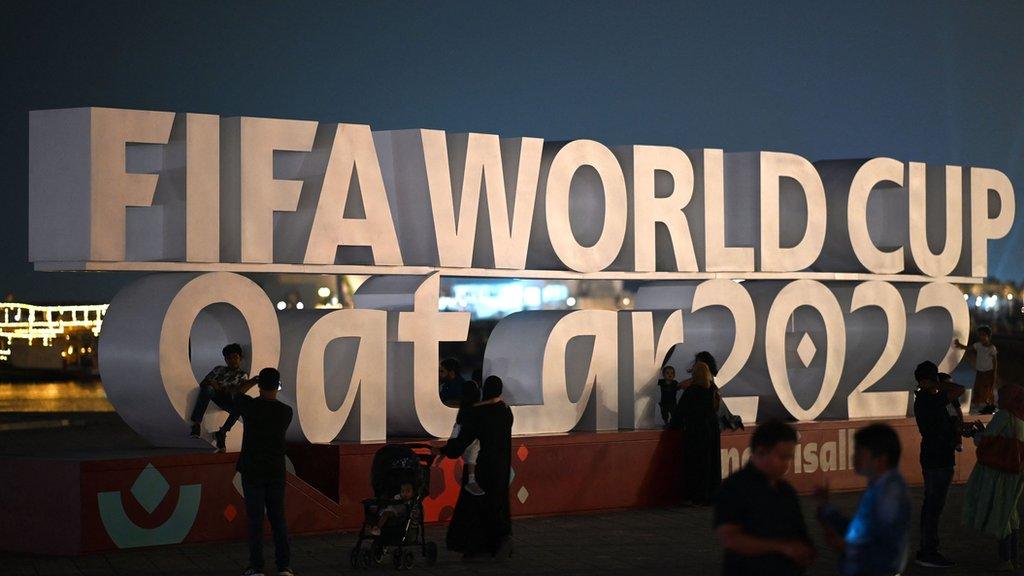
- Attribution
- Published8 November 2022
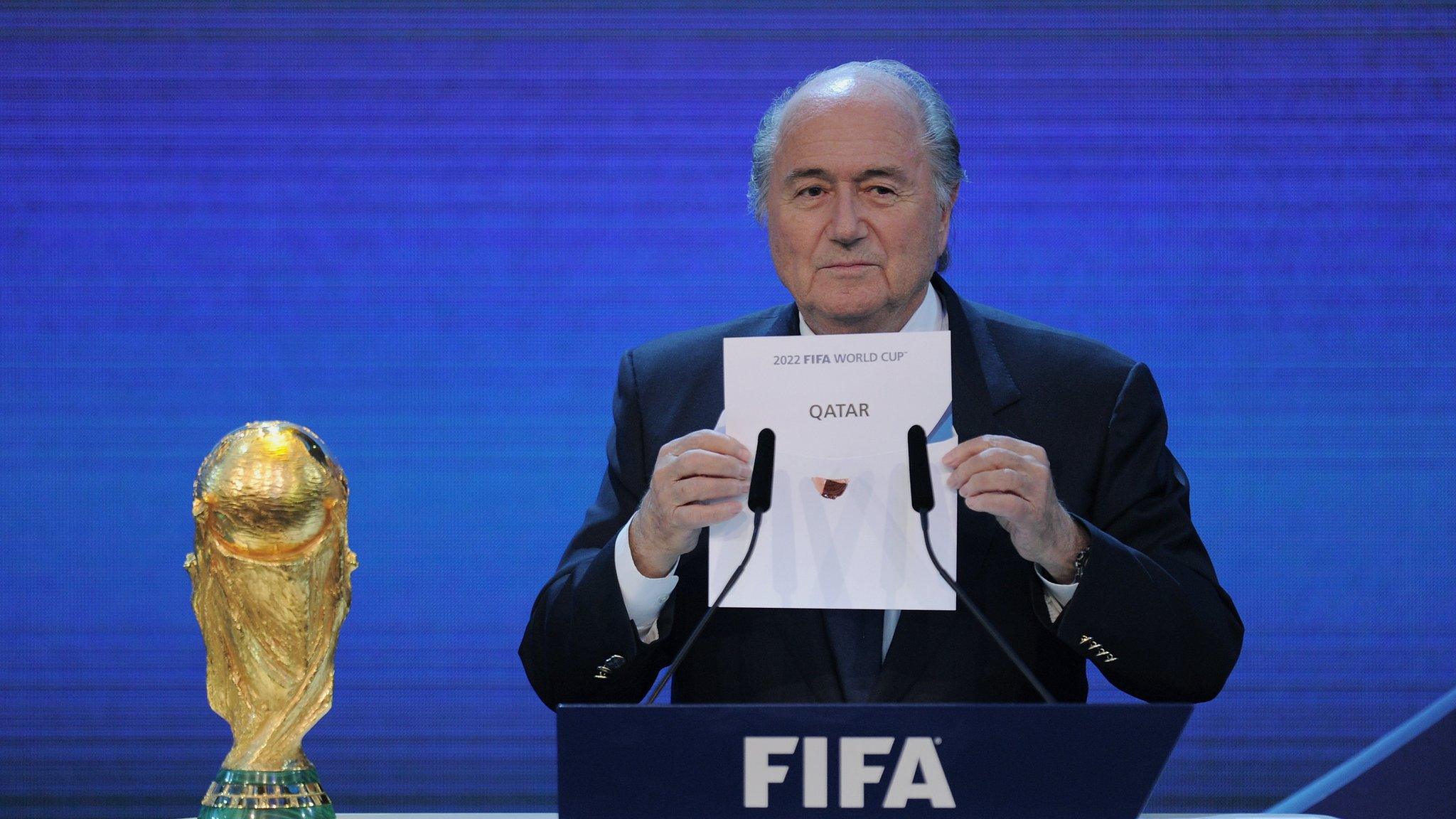
- Attribution
- Published8 November 2022
